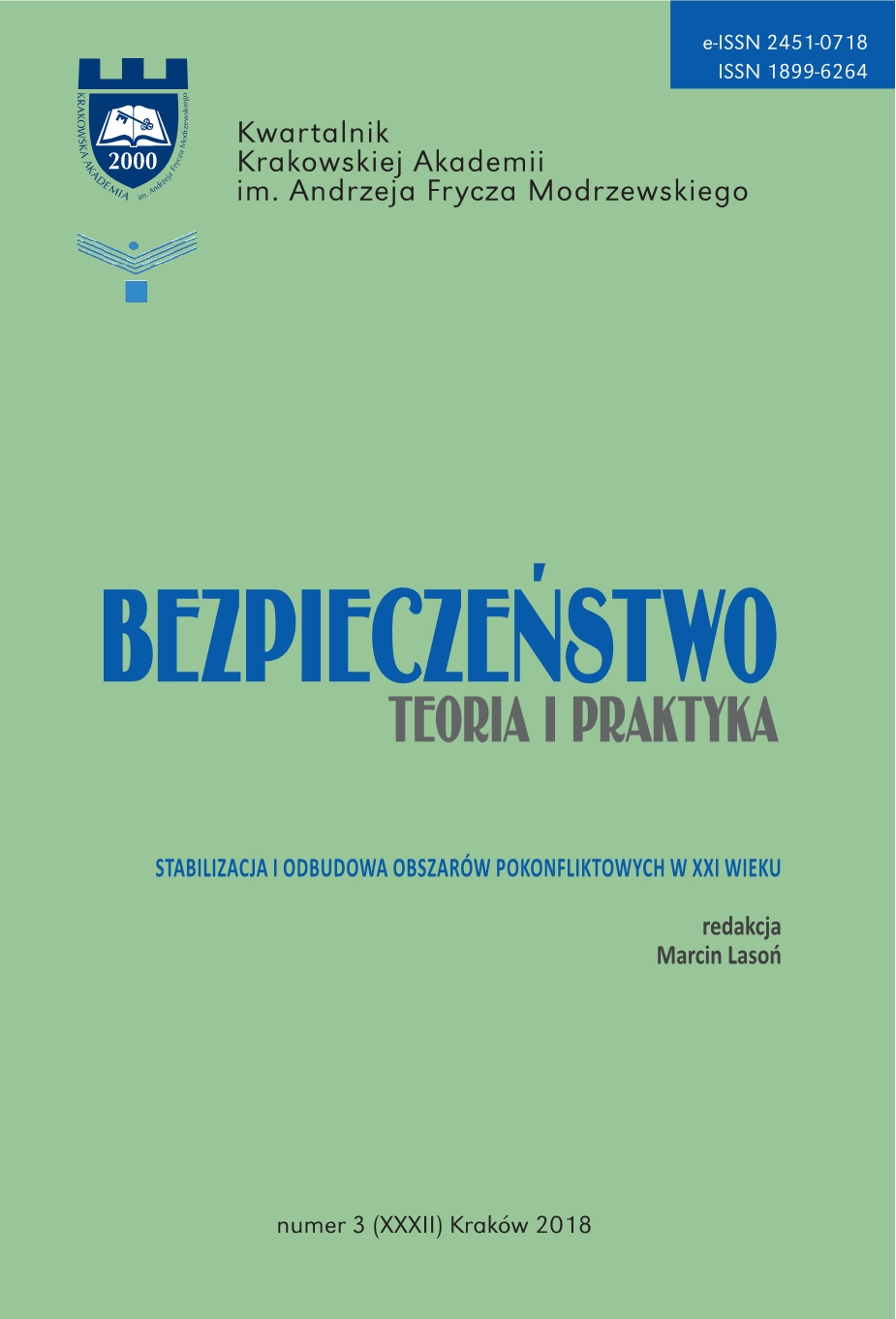
We kindly inform you that, as long as the subject affiliation of our 300.000+ articles is in progress, you might get unsufficient or no results on your third level or second level search. In this case, please broaden your search criteria.

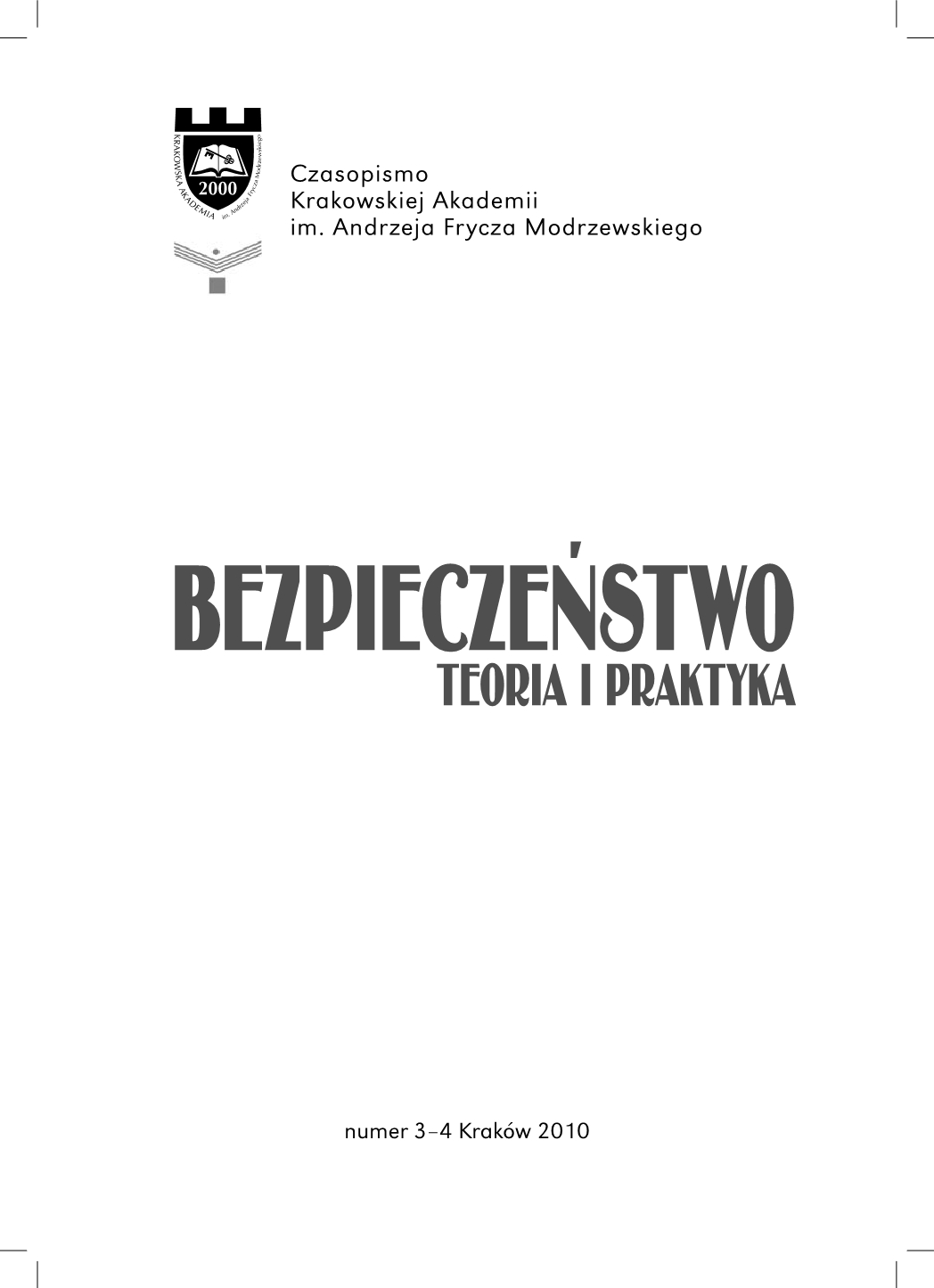
Under the conditions of market globalization and the development of world trade, the significance of a given country determines its level of involvement in international trade. From this, not only does the security of the country depend on its military strength, but also on its economic potential and international economic politics conducted, specifically trade. International economic cooperation is one of the greatest threats to countries at different levels of economic development. Activity, which is geared at liberalizing international trade, minimizing the gap in stages of economic development, regional economic integration, should be thought of as promoting and increasing international security. This activity is further supported, in a broad sense, by the EU’s well-developed system of preferences. Liberalization of trade with third world countries aids economic development plays a role in the growth of exchange and makes the creation of regional integration groupings possible, especially in free trade zones. The European Union uses a very developed and complication system of customs duty preferences, on either a unilateral of bilateral level with other countries. The Union’s system of preferences includes autonomous regulations from the area of preferential trade, as well as decisions based on international understanding and regulation, of which the initiative and regulations of other countries are the source. To this, the Generalized System of Preferences can be added. The European community has a wide range of preferential contracts with different countries, or groups of countries, with different trade stipulations and privileges. Special attention should be drawn to trade agreements, whose strength is drawn from customs agreements between the community and its partners: Turkey, Andorra, San Marino, as well as agreements in which the creation of free trade zones is foreseen: EFTA countries, West Balkan countries, Mediterranean countries. The European Union has undergone negotiations regarding the liberalization of trade laws with the following countries: Latin American countries, Asia (MERCUSOR among others), The Council of the Gulf Cooperation, and ASEAN countries.
More...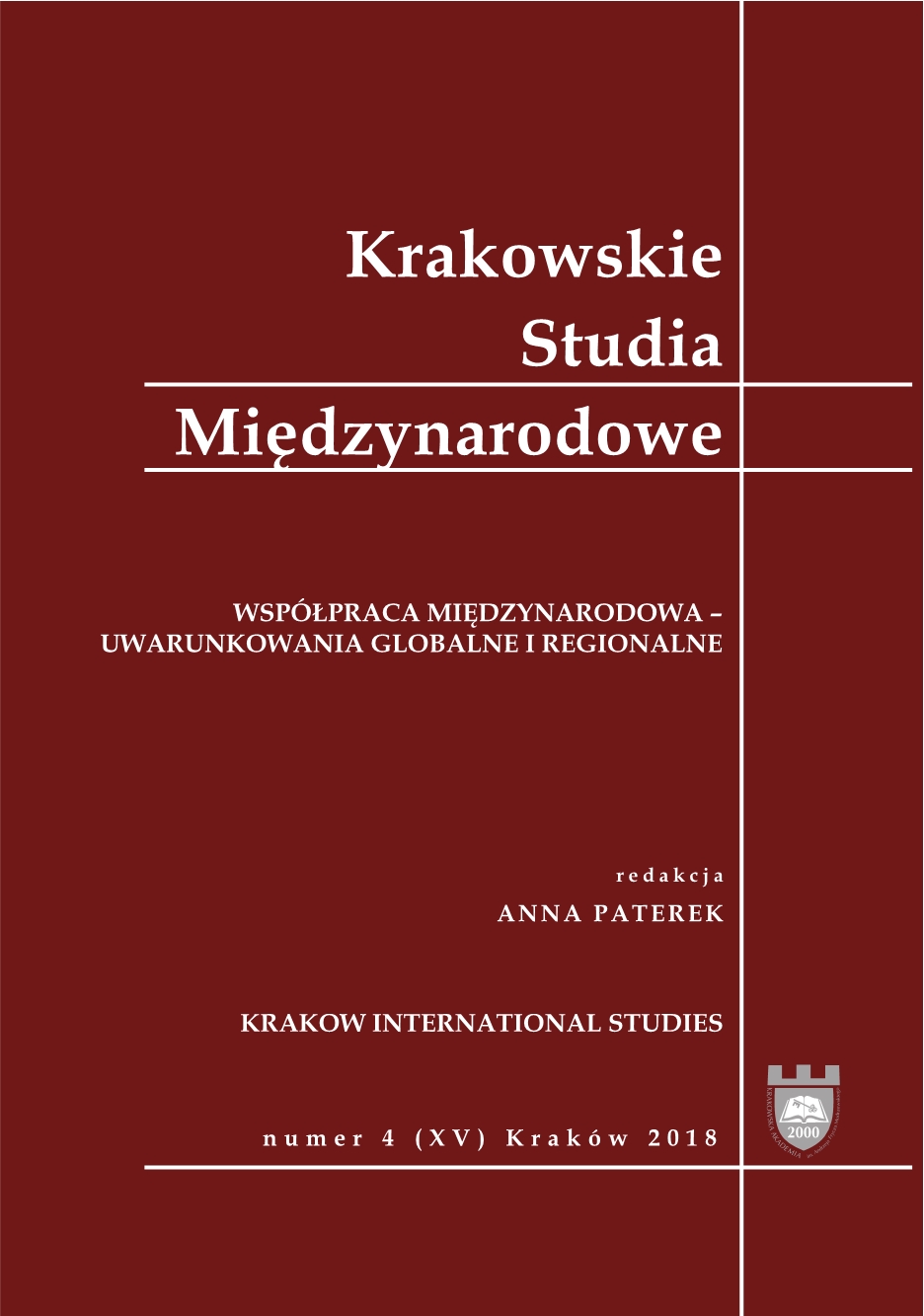
The Middle East and North Africa is facing serious development problems. The cause of many of them are largely natural phenomena, which are more and more often referred to as the new paradigm of regional development and points to the need to strengthen regional cooperation to limit the negative eff ects of these phenomena. One of them is the shortage of water, which has a negative impact on food production and agriculture, which is the main occupation of the region’s population. The situation in terms of access to water worsens as a result of climate warming, rising sea levels and decreasing amounts of precipitation. An additional factor is the expected doubling of the number of inhabitants of the region until 2050, which will increase the demand for water. Access to water resources has become a policy tool and a source of conflicts and wars. The most difficult situation is in this respect in the bass of Tigris and Euphrates and the Nile. A positive example is the cooperation of the Gulf Council States (GCC) in the production of drinking water from the sea and the more rational use of resources through recycling.
More...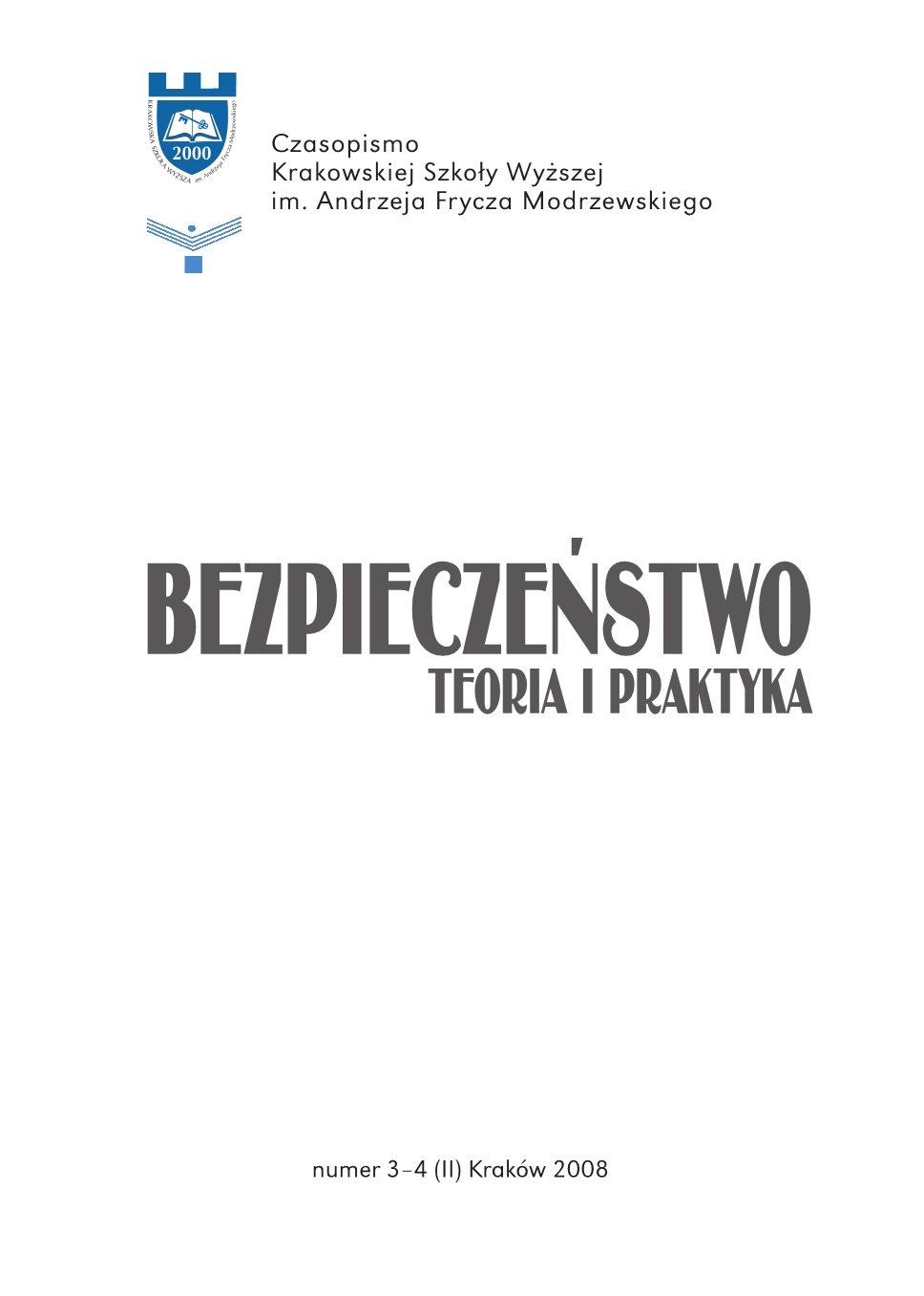
The regional integration of countries as a strategy for reinforcement of political and economic security of states in the region is also adequate for the countries of Southeast Asia. Initiated in 1967, these processes result in the reinforcement of integration in politics and economy, which in turn results in the increased political and economic security, not only in Southeast Asia, but also in the entire continent and on the Pacific. The decision to establish the ASEAN community based on the foundations of economic, cultural, and political cooperation and security proves that the Association of Southeast Asian Nations is an important element not only of the Asia and Pacific region, but also of the entire international system.
More...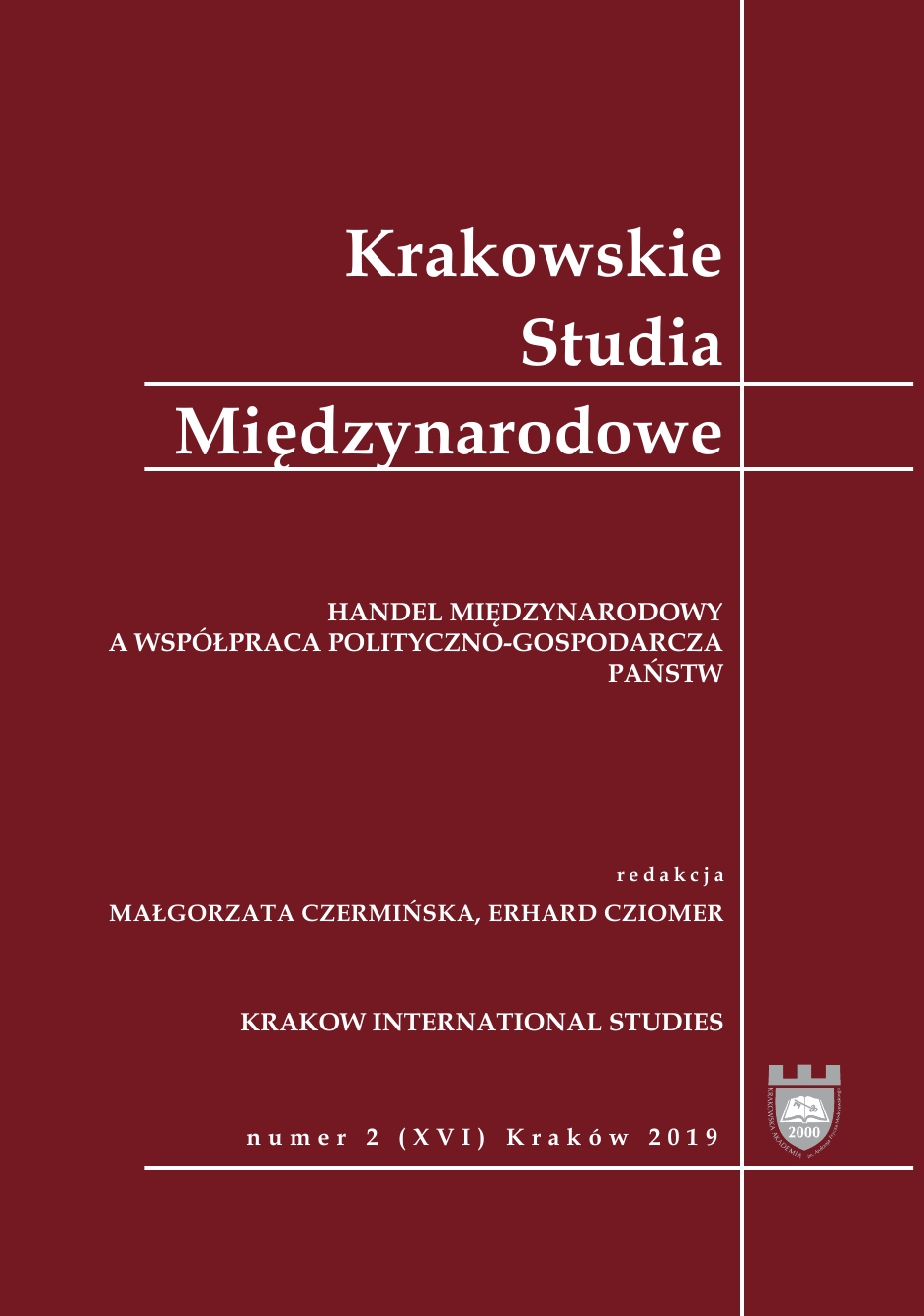
The selection of potential trading partners in new-generation free trade agreements is primarily is above all about economic criteria (market potential, economic growth). This was emphasized in the new strategy of the European Union’s common trade policy in 2006. The first trade agreement of this type which was concluded by the European Union with South Korea fits well into this scheme. Korea is a dynamically developing Asian country, at the same time it is an important trade partner of the EU. The purpose of the article is to show the genesis, main provisions and meaning of new-generation trade agreements which were concluded by the European Union with third countries. In empirical research, the first such agreement – with South Korea – was used. Due to the limited volume of the article, the analysis of the significance of the agreement for EU-South Korean trade relations was mainly limited to trade in goods.
More...
The article analyzes the significance of the Eastern Partnership Program for the wider systemic transformation of post-Soviet states, with particular emphasis on the situation in the Republic of Moldova. On the basis of indicators and statistical data published by the European Union institutions and American research centers, the implications of strategies realized towards six post-Soviet states were outlined. Against this background, the political and economic situation of Moldova and its trade relations with the European Union were shown.
More...
The article presents the significance of trade for political and economic cooperation between Germany and Russia in the historical and contemporary dimension. The analysis focuses on assessment of the determinants of the role and importance of trade in three phases of German-Russian political and economic cooperation: 1) general determinants and development of cooperation from the end of the World War I in 1918 to the end of World War II in 1945, 2) in the former West Germany in the years 1949–1989 and 3) in the period of the United Germany in the 1990s and in the 21st century. In the periods mentioned above, trade exchange was an quintessential element of the overall GermanSoviet-Russian relations in the political and economic spheres. Germany’s role as the main trading partner of the USSR in the West in the 1970s and 1980s enabled, among other things, the Kremlin’s consent to the peaceful reunification of Germany 1989/1990 and contributed to their strong involvement in the economic transformation of the Russian Federation after 1991. In the second decade of the 21st century, the People’s Republic of China (PRC) became the first trade partner for Russia was, undertaking joint actions to reduce the neoliberal international order with the dominant role of the United States.
More...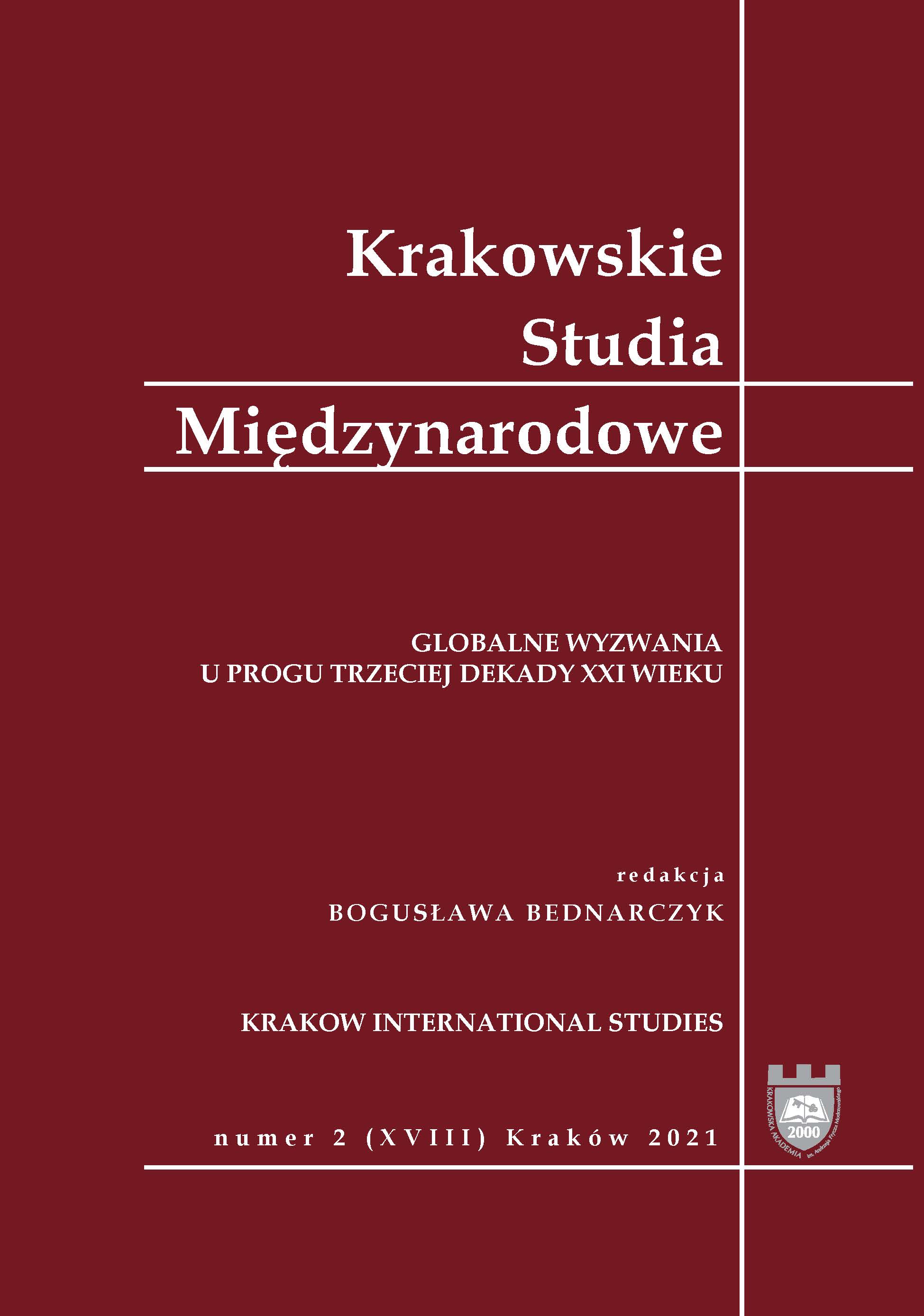
The COVID-19 pandemic has unprecedented and multidimensional repercussions for economic systems both at a national and a global level. The EU legislation provides for unique instruments designed, among other things, to extend aid to the victims of natural disasters (but not only), which may be utilised in order to respond to an unprecedented health crisis caused by the coronavirus. Customs administrations must play an important role here. Countries which reduced the time and costs of customs clearance at their borders are gaining advantage over those which failed to do so. The crisis sparked off by the COVID-19 pandemic led to questions about the application of customs regulations, customs procedures and customs formalities. Customs clearance should be assigned a high priority when it comes to “critical” goods relating to the protection of human health or life, whereas some imports should be exempt from the customs duty and (national) VAT, if it is possible to demonstrate that such commodities have been given free of charge as a donation. This article aims to describe actions and initiatives associated with customs procedures, which were taken by the EU to combat the pandemic. Measures relating to COVID-19, which concern customs procedures and trade, provide, at the same time, a review of challenges that both Member States and the whole European Union must confront to ensure the availability of goods on the one hand, and to facilitate the movement of goods and guarantee the safety of trade in goods on the other.
More...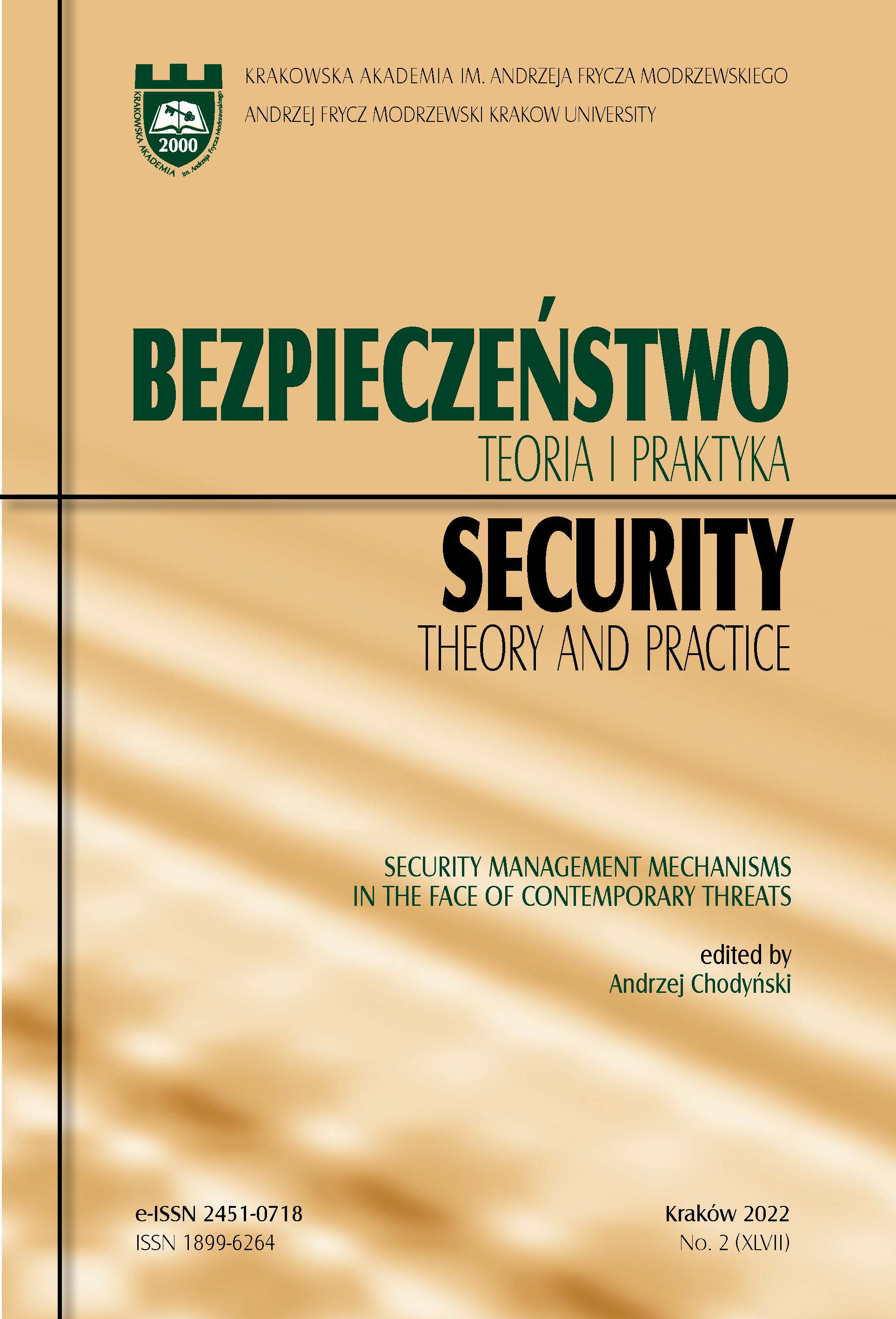
This article investigates the possibilities of using distributed energy resources (DER) to increase the resilience of national energy systems and national security, including the case of war. A review of literature is conducted, regarding the management of DER systems. Conclusions focus on the specificities of managing such systems for national security, namely: a) the importance of complexity theory as basic framework for strategic planning in DER systems b) the management of risks relative to disruptions in supply chains and c) the role to be played by financial instruments and markets.
More...
Hydrogen can be used in several ways, including as a raw material, fuel or as an energy carrier. Therefore, hydrogen becomes an object of interest not only to companies, but also to individual governments. The European Union (EU) promotes low-emission solutions, which entails giving up fossil fuels and adapting the energy mix to renewable energy. In addition, the war in Ukraine is reshaping relations on the energy market in Europe and beyond. The well-known concept of diversification takes on a new meaning, it is combined with efficiency and competitiveness in the event of a change in the directions and sources of energy. It should be emphasized that no CO2 emissions are generated when using hydrogen. This fact becomes a passport to the implementation of the EU’s low-emission goals by 2050. Poland is not energy self-sufficient, additionally it still bases its energy mix on fossil fuels, which consequently raises concerns about meeting the EU guidelines. Therefore, the aim of the study is, inter alia, showing the prospects for the implementation of the so-called hydrogen valleys and sustainable smart cities, as alternatives to, for example, EU guidelines, dependence of supplies on the Russian monopoly, inefficiency and inactivity of the energy sector in the long term. For the purposes of this analysis, a hypothesis has been formulated, which assumes that the use of hydrogen in the economy will significantly improve Poland’s energy security in the long term. The following research question was asked: Will Poland use hydrogen as a solution to meet the EU requirements for a zero-emission economy?
More...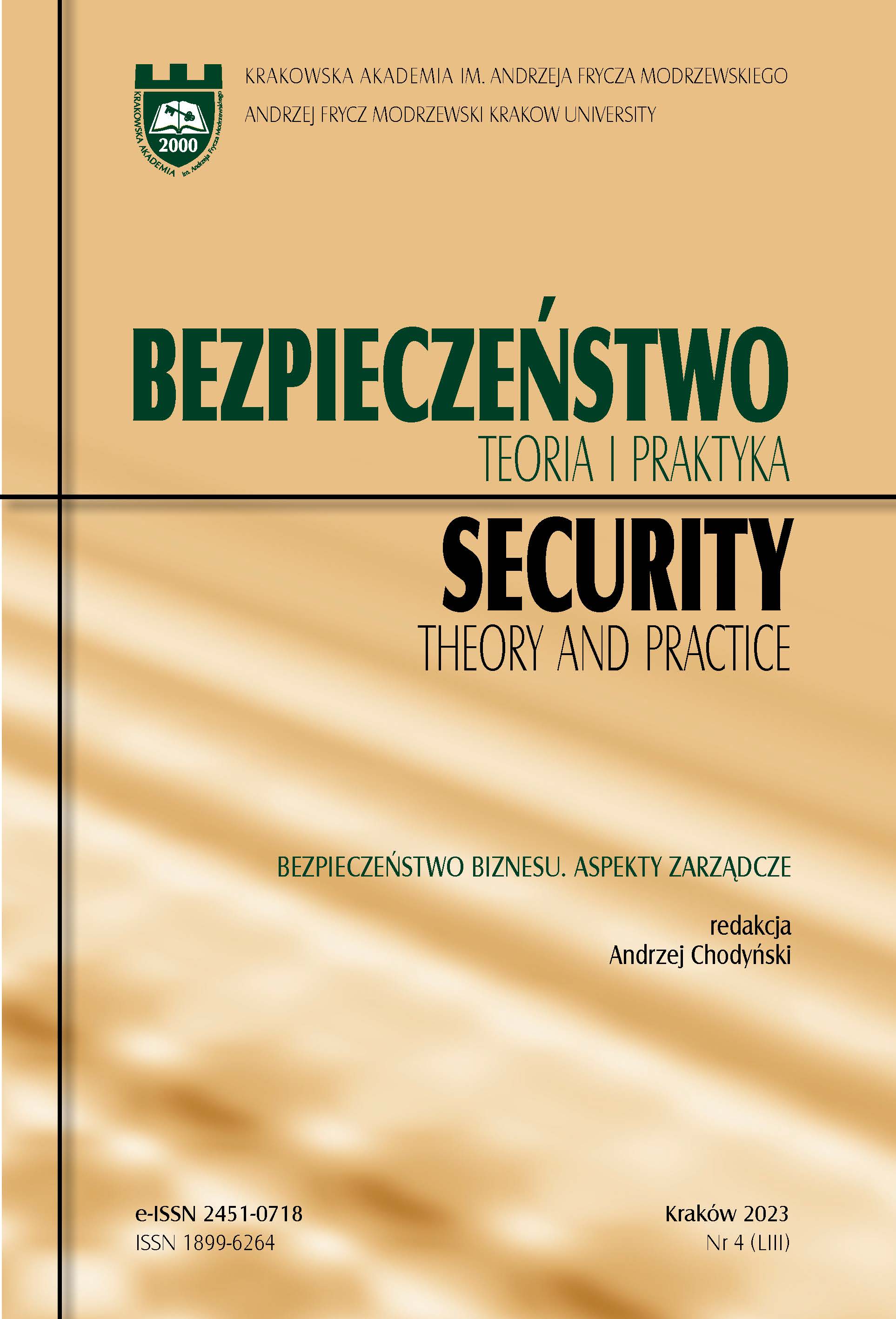



The aim of this article is to identify human traits that are responsible for the propensity to betray and take secrets outside the organisation. For this purpose, an analytical-diagnostic approach has been used. The primary research method to achieve the stated objectives is the method of analysis and critique of the literature on the subject and the analysis of review papers describing security breaches in cyberspace, when the source of these breaches is the exploitation of human personality weaknesses. First of all, personality and character traits leading to taking information outside the organisation or selling important data are identified. Psychopathic tendencies are identified, in addition to the immature, narcissistic and egotistical personality. The reasons for disclosing sensitive data are discussed. In this way, the article shows a different side of the problem of information system security and helps to understand the mechanism of theft or leakage of important information. Since security weaknesses are attributed to personality traits, the article points to the possibility of anticipatory threat recognition and security enhancement. This is achieved through the use of machine learning, artificial intelligence and behavioural analysis. This succeeds in identifying potentially dangerous individuals who are not coping with their own problems.
More...
Contemporary hybrid threats are a challenge for security creators and require new solutions in their prevention. One of such solution is the construction of prevention programs to prevent radicalization and hate speech. These programs should be science-based, well-designed, and include knowledge of psychology, sociology, law, and security. Programs addressed to young people should also take into account the challenges of adolescence and should be run by specialists with up-to-date knowledge, skills and competences. The aim of the presented evaluation study of the preventive program was to check the effectiveness of the educational program preventing radicalization leading to discrimination and hate speech „Rozumiem=Szanuję” (Polish for “I Understand = I Respect”). The study shows that the assumed goals of the program were achieved. In order to comprehensively evaluate the effectiveness of the program, analyzes of existing and induced sources were carried out as well as qualitative research (interviews) and quantitative research (survey technique), conducted after the implementation of individual program modules.
More...
The variability of the external environment affects the changes taking place in the internal environment of the organization (enterprise). One of the factors that must be taken into account in the development of an organization is security. Ensuring the security of the organization requires having a security manager who will implement the process of a permanent stable functioning of the organization in a changing environment. It should be remembered that security can be considered from various points of view, not only as a state of war or peace in a given country, but also as a state of threat from competitors, etc. The aim of the study is to present a cultural model of a security manager with a factor of flexibility. The model is the result of theoretical and conceptual research by the author of this study, which enriches the discipline of management and quality sciences
More...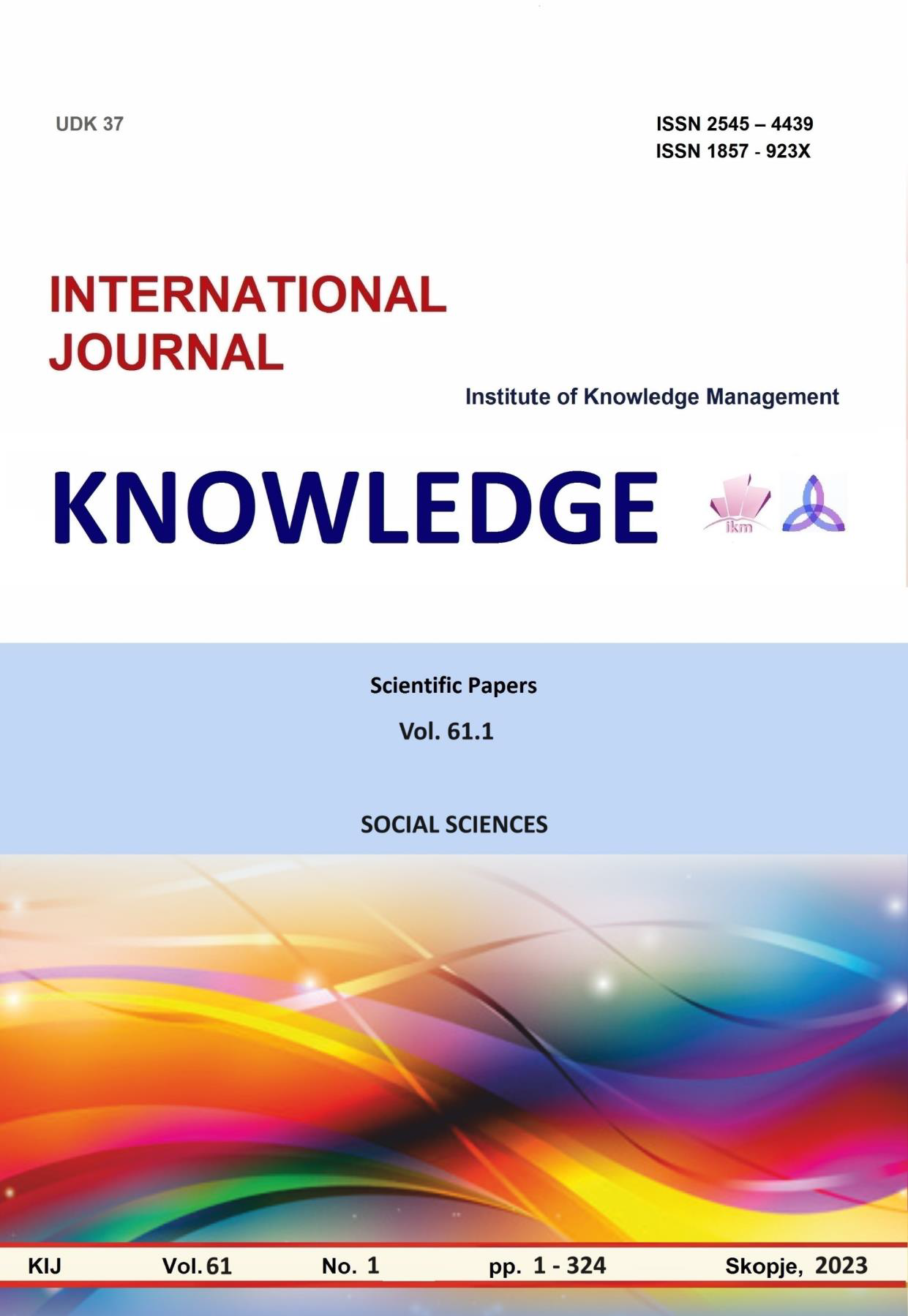
Sport, social networks and digital marketing are the terms that are very corelated today, there is an opportunity for development of each of them as an activity, and promote them one through another, like never before. Sport and social networks that every person uses today are forming digital sport marketing. Sport marketing is not at the required level in Macedonia, even where it is represented, in our opinion it is debatable to what extent and in which form it is used. The degree of general image is far from the marketing trends applied in the world. The sport organizations in our country do not pay attention to the development of the marketing sector and the actions of its nature, mostly due to insufficient knowledge of the specialized promotional area or because of financial reasons. Without the use of marketing advertisements, there is a negative impact in our sport organizations, as well as in the communication between the organizations and the fans who are the main consumers of sport products and services. This paper is aimed at digital sport marketing in Macedonian sports. The main goal is to see how much digital marketing is used for promotion in the work of Macedonian sport organizations. For the realization of the goal, our primary task was a direct analysis of the existing promotion of Macedonian sport organizations in our case FC "Rabotnicki", through the prism of digital networks. From the analysis of the current state of digital marketing implemented by FC "Rabotnicki", it can be concluded that: - FC Rabotnicki is present and active in the digital world with an official website, Facebook and Instagram profile. The website used to be updated and is very successful type of Facebook and Instagram profile. There is not too much information on the website about the academy and other members, benefits, etc. - Unlike the website, on the Facebook profile, despite having a solid number of followers, it can be concluded that the profile has a lot of informations and is far from what the profile of a professional club of that level of competition should look like. - Instagram is in the worst condition and it's a big problem with the opposing network. Instagram is one of the most used networks today, among the young population (which should be the target group of the club), but the trend in usage by the older population has recently been noticed. From the obtained results, we concluded that the promotion through the digital networks implemented by FC "Rabotnicki" is far from professional and as a club it is far below its competition. More changes are needed to improve the promotion of FC "Rabotnicki", how it would keep it up with its competition, but also the possibilities of advantage over them, following these trends that are happening in the world of sports.
More...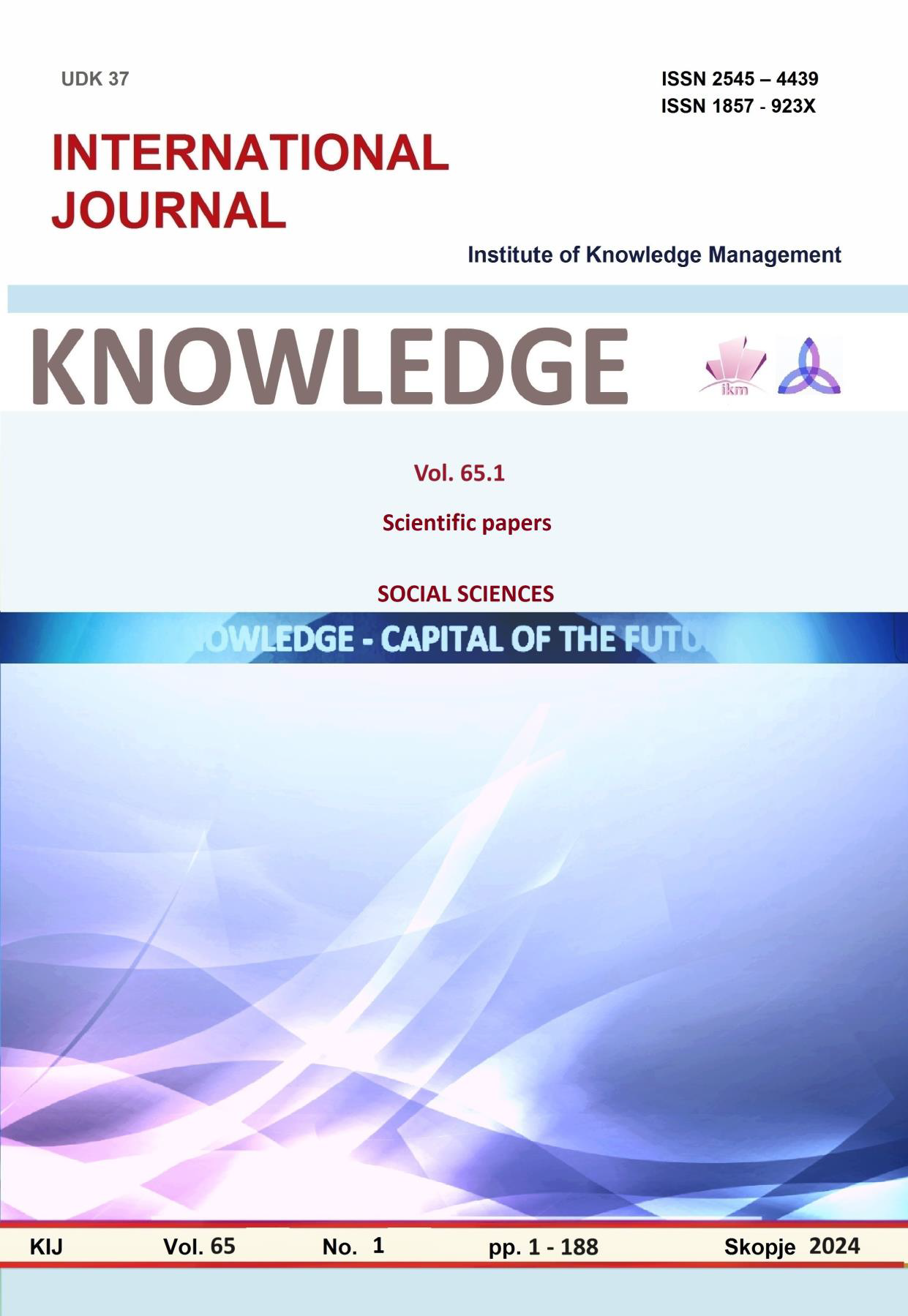
The analysis of the international trade business of the enterprise is an objectively necessary element of its management. It has a leading role in the decision-making processes for the effective management of the diverse international trade operations of the enterprise. The successful practical implementation of the analysis of the international trade business requires adequate modern information provision and use of appropriate economic information, including accounting information. It is necessary for the enterprise to have sufficiently detailed accounting information to enable a detailed study of the constituent components of the objects of analysis and the factors affecting them. It is essential that the analytical accounting system is organized on the basis of such criteria that correspond to the maximum extent to the specific guidelines for detailing the analysis of the international trade business. The author's goal in writing the article is to investigate the specific characteristics of the methods of analysis of the international trade business of the enterprises and their accounting and information provision in the context of the modern international business environment. To achieve the main goal, several important tasks are set to be solved: - to justify the leading role of analysis in the process of managing the international trade business of the enterprises; - to consider key methods of financial and economic analysis, applied in the analysis of international trade business and the specific requirements for their accounting and information provision; - to study key methods for marketing analysis applied in enterprises developing international trade business and the specifics of their accounting and information provision; - to argue the need and explore the possibilities of applying modern innovative methods for analytical studies of the international trade business of the enterprises, resulting from the rapid development of the modern processes of digitalization and globalization. The research methodology includes the following approaches: descriptive, systematic and interdisciplinary. The descriptive approach is applied in the presentation of the various analytical methods, the highlighting of their specificities and their corresponding information needs. Through the systematic approach, individual analytical tools are considered as constituent elements of the method of analysis of international trade business. The interdisciplinary approach is used to study the problems through the prism of the connections of accounting with financial and economic analysis, marketing and management of the enterprises specializing in international trade business. The methods of observation, induction and deduction, etc. were also used. It is extremely important to achieve a high degree of adequacy between the models applied in the enterprise for creating accounting information for the international trade business and the models for analyzing it in accordance with the information requirements of modern management.
More...
This comparative analysis delves into the nuances of risk propensity measurement within managerial decision making, juxtaposing three prominent tools: the Specific Risk-Taking (SRT) Scale, the Balloon Analogue Risk Task (BART), and the Domain-Specific Risk-Taking (DOSPERT) scale. The study critically evaluates the effectiveness of these instruments in distinguishing between risk—where probabilities are known—and uncertainty—where they are not. BART, with its behavioral focus and dynamic engagement, is posited as superior for its objective evaluation of risk behaviors and practical implications in various settings. However, the DOSPERT scale's domain-specific assessment and the SRT Scale's psychological insights provide valuable, context-dependent alternatives. The study identifies a need for these tools to be integrated with more contextually valid measures to bridge the gap between assessed risk propensity and real-world decision-making. The paper contributes to the discourse on risk measurement and decision-making under uncertainty, emphasizing the importance of tool selection based on context and cognitive load.
More...
What is almost always missing from #Metoo is an analysis of the place of our biological condition. Transhumanism has some things to say on this subject.
More...